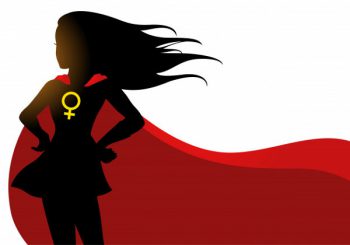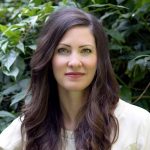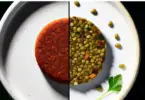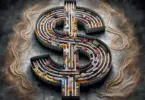Guest Writer for Wake Up World
“You may trust me because I have an M.D. That may mean, to you, that I have information that you don’t have. I know things about your body – about bodies – that you are not privy to by virtue of your non-expert station in life.
You may trust me because I am a woman. Because women inspire the trust of a mother, with their flowing hair and eyelashes, their soft skin and breasts, and their uniquely prosodic voices.
[pro_ad_display_adzone id=”110028″]
What is it, then, for a woman to become a Western physician? Is it perhaps possible that egalitarian feminism has given us an opportunity to feel the difference between a man in a patriarchal role and a woman assuming that same position? Is a woman misusing her power more dangerous than a man? It feels easier to trust a female physician, but what is it to trust a woman who believes the body needs to be managed? Who likely has not cultivated any intimacy with her own body and its interplay with the mind and emotions, let alone the body, mind and emotions of her patient. Perhaps only a women divested of her own relationship to her body’s innate wisdom could become a Western physician. And only as that physician can she then capture men and women as patients in a way that fundamentally disempowers them in service of her seeming expertise around the body machine.
This was my story. I was a woman seeking mastery over the body in the dominion of a patriarchal hierarchy that treats this mastery like some cultish code only select initiates have access to – not the layperson, and of course, not the patient. I did not know what a woman’s wisdom could look like.
I did not know that the body’s symptoms are a signpost for unexplored conflicts, tension, and imbalance. I did not know that there isn’t a way around fear and pain, only through. I did not know that suppressing and fixing scary symptoms only begets more complex challenges. I did not know any of this, and because I am a woman, and a doctor, my patients trusted me nonetheless. They trusted me to write prescriptions for them and their unborn fetuses and breastfeeding infants…They trusted me when I colluded with their fear and assuaged their guilt about taking psychotropics.
I need you to know that I am aware of the ways in which I still wield my credentials, my expertise, and my woman-ness to inspire your trust. I also need you to know that you are choosing to place your trust in me, and that it is imperative to examine the places we are choosing to trust.
Perhaps the only person, institution, or group that deserves your trust is one that reminds you of what you already know. Not one that offers a poison apple that is irresistibly shiny and couldn’t possibly have been grown in your own back yard. Don’t abandon yourself in search of healing no matter how much the promise seems to offer you a sense of control. That sense of control will soon transform into dependency on a system that owns the power you gave it.
So if I have lured you in with the promise of what my credentials might offer, allow me to open the door to my examination room. Go ahead, get undressed, put this gown on, and start exploring. I won’t be back with a diagnosis or prognosis. Because only you know what can be known about you. That’s why the best healthcare is delivered by Helpers and a community who hold a mirror to allow you to see yourself better, not Western Doctors who only know the body as object.”
——–
I shared this missive on my Instagram a while back and have rededicated myself to creating the conditions, in what ways I can, to liberate every person I touch to their own power. This power may be best experienced when we can witness our capacity to make self-affirming, self-loving, and self-aligned choices. But what is a choice? Are we really free to make them?
The anatomy of choice
It strikes me as, perhaps, the single most important feature of the human experience that we have (and retain) the capacity for choice. Sometimes referred to as free will, choice is our power. Our self-affirming impulse. It is the I AM whispered, spoken, and screamed out into the space beyond.
Choice of what socks to pull on, of what charity to donate to, of whom to make love to, of whether or not to end one’s own life. These choices, made in every moment, weave the fabric of who we are. And every poor choice misaligned with our deepest essence offers the opportunity to, by contrast, experience a higher integrity choice in the future.
It might be noted, as well, that in societies where choice is suppressed, dehumanization and the experience of our fellow persons as either compliant or non-compliant emerges (Handmaid’s Tale anyone?).
But the slippery slope to suppression of individual power begins with the “mindless” automation of our behavior and actions. It begins when we allow ourselves to somnambulate, also known as “sleep walk.” When we allow our subconscious conditioning to remain subconscious, driving our preferences, opinions, and actions under the light of our awareness.
In fact, it may be that we don’t have choice until we know that we do.
The process of rendering the subconscious (read trauma imprints, parental programming, intergenerational patterning, and social engineering) conscious may be a lifetime spiritual pursuit. Right now, however, across the globe, we have a veritable emergency unfolding…an alchemical cauldron the likes of which brewed the Holocaust and slavery. So how can individuals be re-empowered now?
Here’s what has worked for me…and all that I can share is my experience because I don’t know anything for certain.
1. Identify where you have put your trust:
Trust is the connective tissue of our meta-organism. We long to trust. We do it even when we shouldn’t. We animate our beliefs with faith. And this faith-based trust is a vector with a direction from you to the other. It’s a piece of you that you give away. And this is why it hurts when it is violated or betrayed. Betrayal itself may simply be awakening to something you did not want to see. So how can we see with eyes wide open and actively choose where we are placing our trust? It begins with recognizing our influencers. At this point, I choose to trust mother earth, a handful of human beings, and the cosmic design of this mystery. But once upon a time, I trusted science, the medical establishment, and the principles of pharmaceutical interventions. I would have given all of my freedom away for the promise of safety. So where are you placing trust? Any big corporations on that list? Doctors? Governing agencies? Your parents? Whole Foods? Make a list.
2. Learn what is possible:
There are visionaries, pioneers, and trailblazers in our midst. I’ve been known to say, however, that they are often the first to be captured by psychotropic medications. Those individuals, when their gifts are nurtured, can manifest within them what does not already exist without. The rest of us, however, do well to be inspired. We need to know what’s possible in order to awaken to our own directionality. Terminal cancer can be meaningfully transformed into vitality? Multiply medicated chronic psychiatric disorders can be shed like a too-tight skin? Organs can be regrown? People can get up out of wheelchairs? Yes. Allow the knowledge of these already-lived experiences to call you home to your rightful destiny.
3. Understand fear as a motivator:
When life is about avoiding the bad and collecting the good (and more for you means less for me), then the driving force is fear. Hopefully we can all agree that acting from fear – from a story we tell ourselves about what is happening that inspires urgent short-sighted action – is never as powerful as acting from strength let alone from love. Look for the loudest voice around a given choice…is it “this is bad and needs to go away!” or is it “what is this about, and how can I support myself in discovering more?” If it’s the former, put a pause on related decisions and look for the choices that you can make that come from an inner sense of I’m worth it and will wait for myself rather than I’m terrified and need to feel ok immediately.
If we start here, we can learn about the landscape of choices, and even if we feel we “don’t have a choice,” we can recognize that we still have microchoices – places where we respond to what is. We can kick or not. Scream or not. Tell or not. We can run or not. Hide or not. In fact, this is one of the more powerful premises of Byron Katie’s methodology she calls “The Work” which serves to dispel victimhood through the identification of each and every place that we played a part. Each and every place – even as a prisoner of war, even as an incest survivor – that we made small choices to participate with what unfolded. The point of this is not to blame the victim, but to end the illusion that we are powerless.
Choice vs decision
Speaking of choices and decisions, are they the same? Plus column, minus column, squint and focus and take the leap! As it turns out, there is a way to live life without making a single decision. It’s called being present to what is. Decisions can feel like an intellectual test. But when that’s the case, it may be that it’s not the time to make a decision yet. When you don’t know what to do, wait until you do. Because there will come a moment when you know what to do. You make that phone call, you move your body to the left, you leave that job, and the action emerges from a felt knowing that that step emerges from the previous one. Decision-making can be a means of overidentifying with an intellectual or psychological understanding of the available terrain…an understanding that may be conditioned or limited. Choice on the other hand, can be an exercise in self-declaration, in self-authority, and in selecting opportunities from a place of personal agency, that are the truest reflection of who we are.
Choice paralysis
In NYC, it can be difficult to go to a new restaurant or out on a date because of the nagging sense that there might have been a better option that was forsaken. Abundance of options can lead to a fearful state that invokes our childhood wounds around “doing something wrong” that will lead us to isolation, rejection, and loss of love, so we often align with what we imagine to be the “right” or “good” option. But the truth is that our bodies can help cut through the noise. And our bodies have an inbuilt yes and an inbuilt no. You may be attuned enough to feel the “hit” if you get quiet enough. I’ve found that self-applied muscle testing methods can be a powerful tool. These days when I am confronted by 18 bottles of supplements on my counter, I’ll only take the ones my body says yes to.
Your body, our choice
Not so much, right? Even if your beliefs happen to fall on the side of mandatory vaccination, masks, or rendering elective abortion illegal, you might imagine that if you happened to fall on the wrong side of this particular approach to civil liberties, you might not appreciate the tyranny of the majority dictating what you can do with your body. Bodily sovereignty is something most of us must awaken to, however, because when we are afraid, we give up all sorts of power in exchange for a sense of control. We are not in our bodies, we fear them, we abuse them by making choices that we know our bodies reject, and for many of us, this started at a point of trauma wherein our souls literally fled the premises.
But the truth is that your body is trying to show you something. Like my girlfriend who had a (large!) wart on her finger for an entire year. During that year she was traveling with her children around the world and her husband was working from their home in the States. I reflected that I might have done whatever I could, natural or otherwise, if I had been her, to get that thing off my finger. But she didn’t. She waited for her body to show her, and when she returned home and spent the summer with her husband and children, the wart fell off. In fact, according to German New Medicine, a wart relates to a separation conflict, so now she knows that that is how her body expresses that tension. Our bodies will tell us how to move, what to eat, and where we might be misaligned, if only we learn the language of this sophisticated organism.
Resetter Quote:
“Funny experience today that shows that your body knows once you give it time to reset. I am on day 2 of a bad cold and thinking of what to eat. I was craving yogurt (non-dairy, no sugar) and thought I would make a mushroom omelet, something I don’t think I have ever made. Then I read this afternoon that yogurt, mushrooms, eggs, and yams are some of the best ways to shorten a cold’s length. So, I just need to make a yam and I should kick this thing quick! So cool my body was craving all that.”
As we welcome ourselves home to ourselves, we are invited anew to act as guardian over our own experience. We have the opportunity to retain our power, our native expertise over ourselves and to resist the fear-based temptation to outsource it. For example, it doesn’t take much objective consideration to recognize that a woman presenting to an allopathic male gynecologist to learn more about her genital anatomy and symptoms is kind of “off.” Under the auspices of ritualized medicine (white coat, standardized office decor, physician speak), she allows a man to penetrate her most sacred regions, so that he can tell her what she apparently cannot discover about herself or through the supportive care of a female healer who herself is sharing the wisdom of her experience to awaken another’s.
Doctors only know what they know and they must believe that what they know is valuable or they wouldn’t be effective authorities or experts. The premise of conventional medicine is the belief that we can engineer and architect a safer, more productive, more functional reality than nature itself can. We’ve tried this with agriculture, and it turns out that the only hope we have for restoring our soil lies in cessation of all of our best practices and a good-faith effort to get out of the way of a deeper intelligence.
This deeper wisdom is something we all possess. In fact, there is a Greek word I love – anamnesia – that means, in a sense, remembering what you already know. It is my sincere hope that this M.D. has helped you to remember that you don’t need me, my answers, or anything but the inspiration and support to finally turn your loving gaze inward.
Interested in more insights and tools to help you Own Your Self?
My newest book, Own Your Self, helps you discover the meaning behind your symptoms and your struggle as a way to reclaim your health and your Self. Click below to claim your copy today.
Originally published at kellybroganmd.com and reproduced here with permission.
Recommended articles by Kelly Brogan, M.D.
- Adverse Effects of Antipsychotic Drugs in Children
- Your Microbiome on Drugs
- Oops! The Brain DOES Have An Immune System
- Is Your Prescription Drug Causing Your Depression?
- Contraception Depression: Can the Pill Affect Your Mood?
- A Time for Rain: Teaching Our Children About Sadness
- Psychobiotics: Bacteria for Your Brain?
- Vitamin B12 Deficiency: A Trigger for Depression and Anxiety?
- The Violence-Inducing Effects of Psychiatric Medication
- Fear Is The Sickness
About the author:
Kelly Brogan, M.D. is a holistic women’s health psychiatrist, author of the NY Times Bestselling book, A Mind of Your Own, the children’s book A Time For Rain, and co-editor of the landmark textbook, Integrative Therapies for Depression. She completed her psychiatric training and fellowship at NYU Medical Center after graduating from Cornell University Medical College, and has a B.S. from M.I.T. in Systems Neuroscience. She is board certified in psychiatry, psychosomatic medicine, and integrative holistic medicine, and is specialized in a root-cause resolution approach to psychiatric syndromes and symptoms. She is on the board of GreenMedInfo, Price-Pottenger Nutrition Foundation, Functional Medicine University, Pathways to Family Wellness, Mindd Foundation, SXSW Wellness, Chickasaw Nation Wellness, and the peer-reviewed, indexed journal Alternative Therapies in Health and Medicine. She is Medical Director for Fearless Parent and a founding member of Health Freedom Action. She is a certified KRI Kundalini Yoga teacher and a mother of two. For more articles, sign up for her newsletter at kellybroganmd.com.
[pro_ad_display_adzone id=”110027″]








